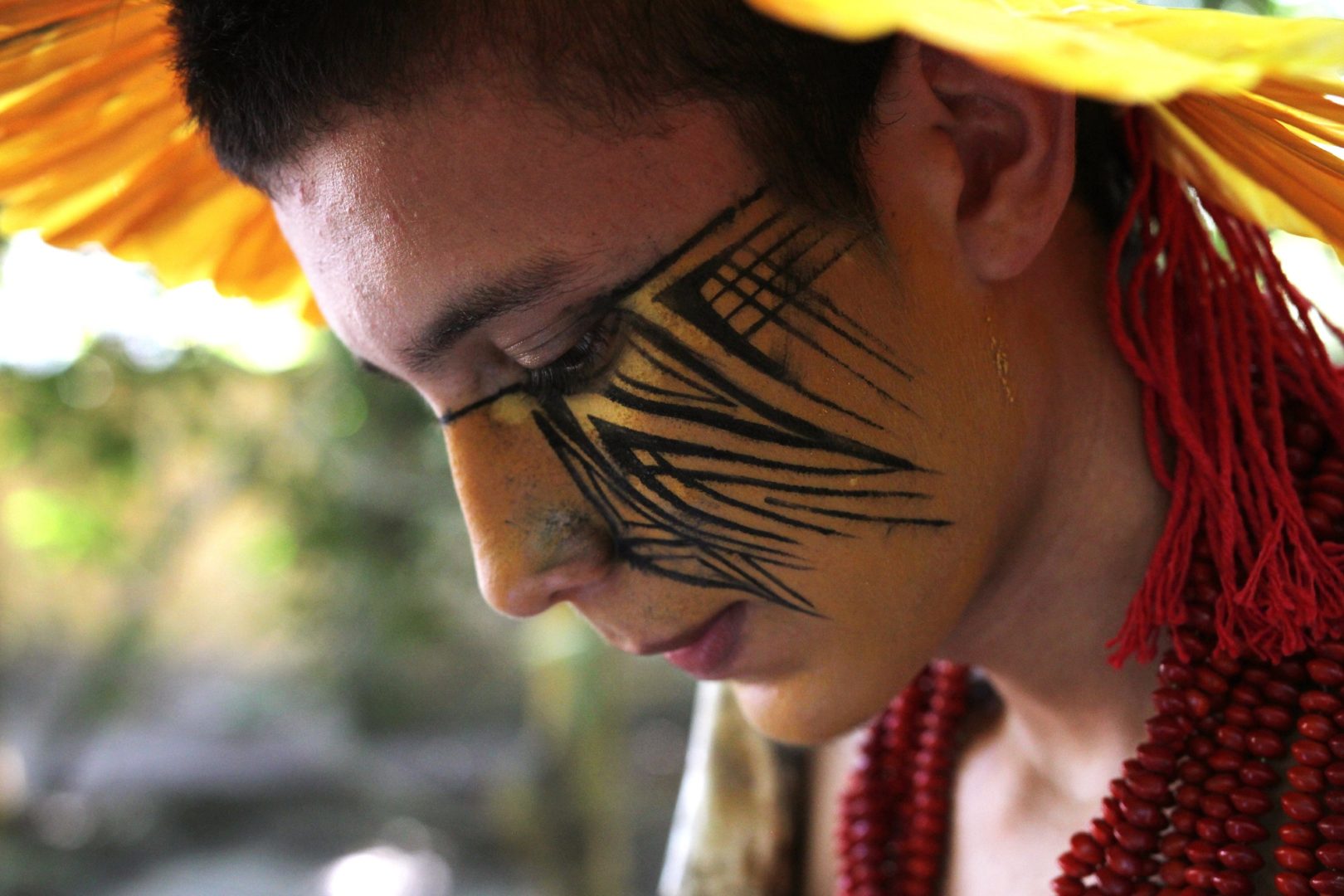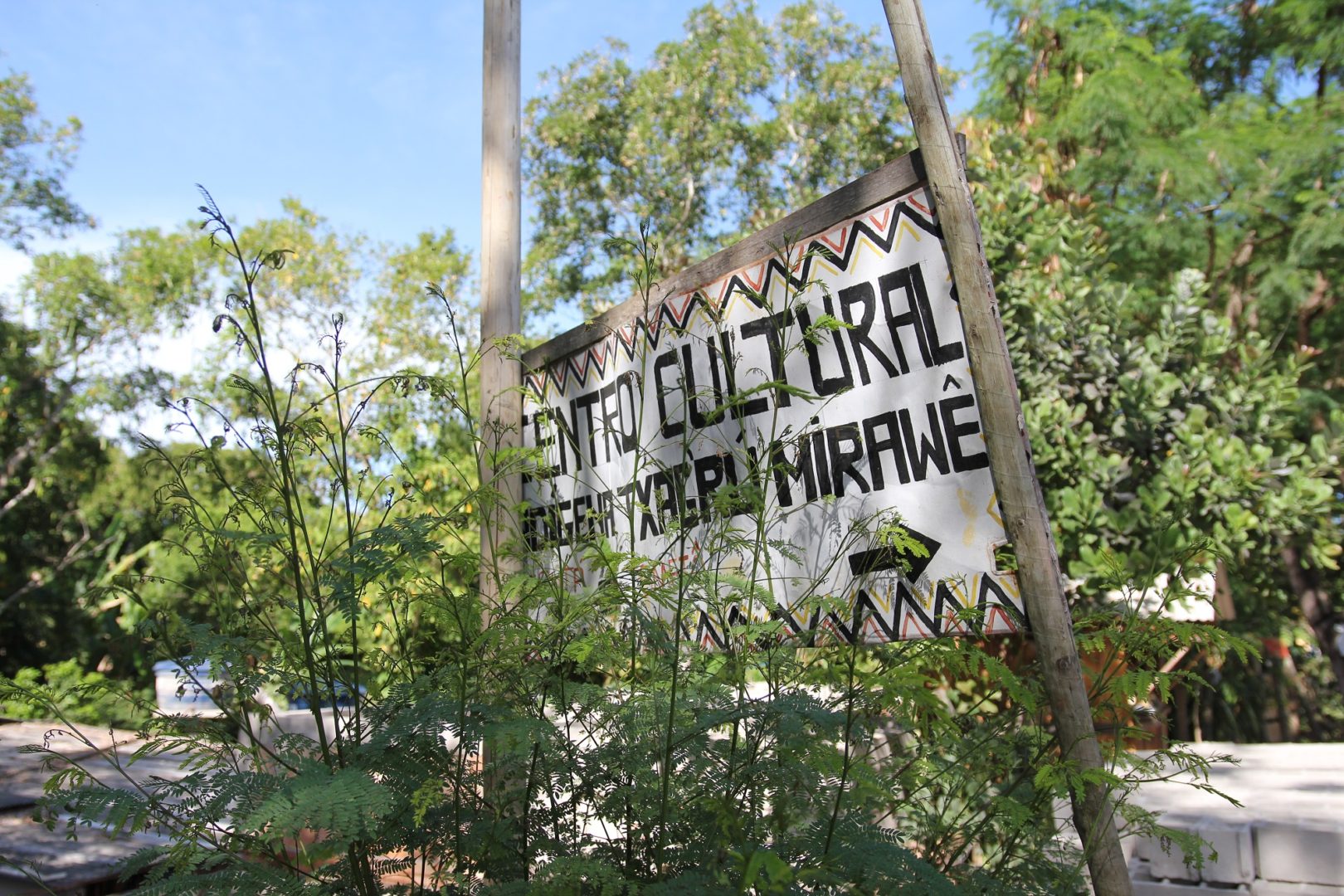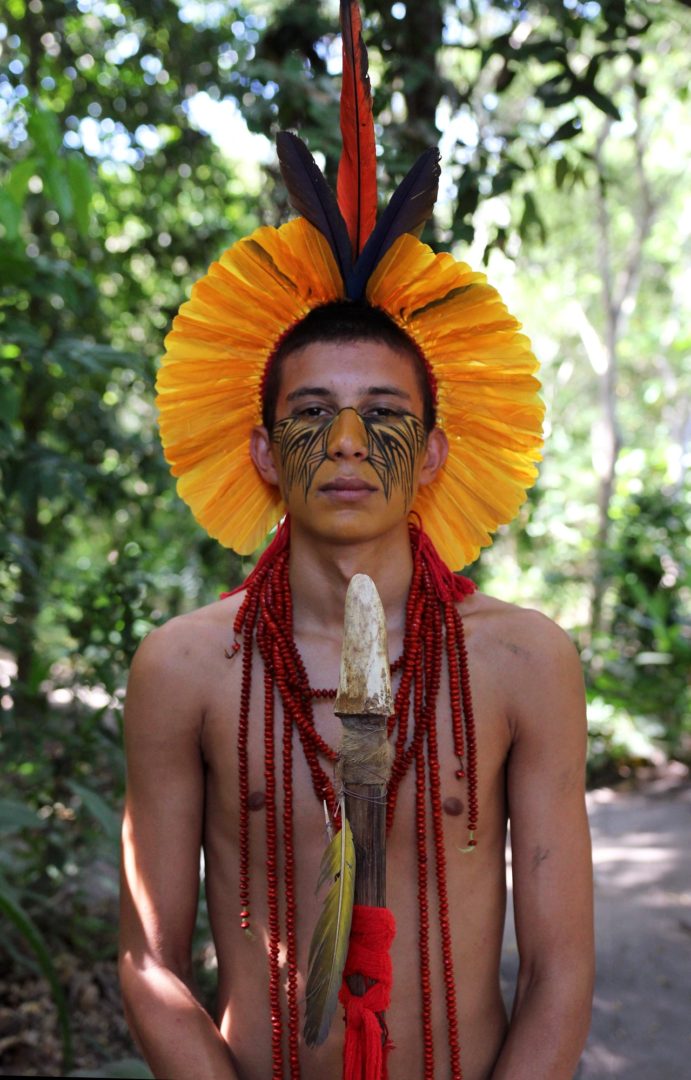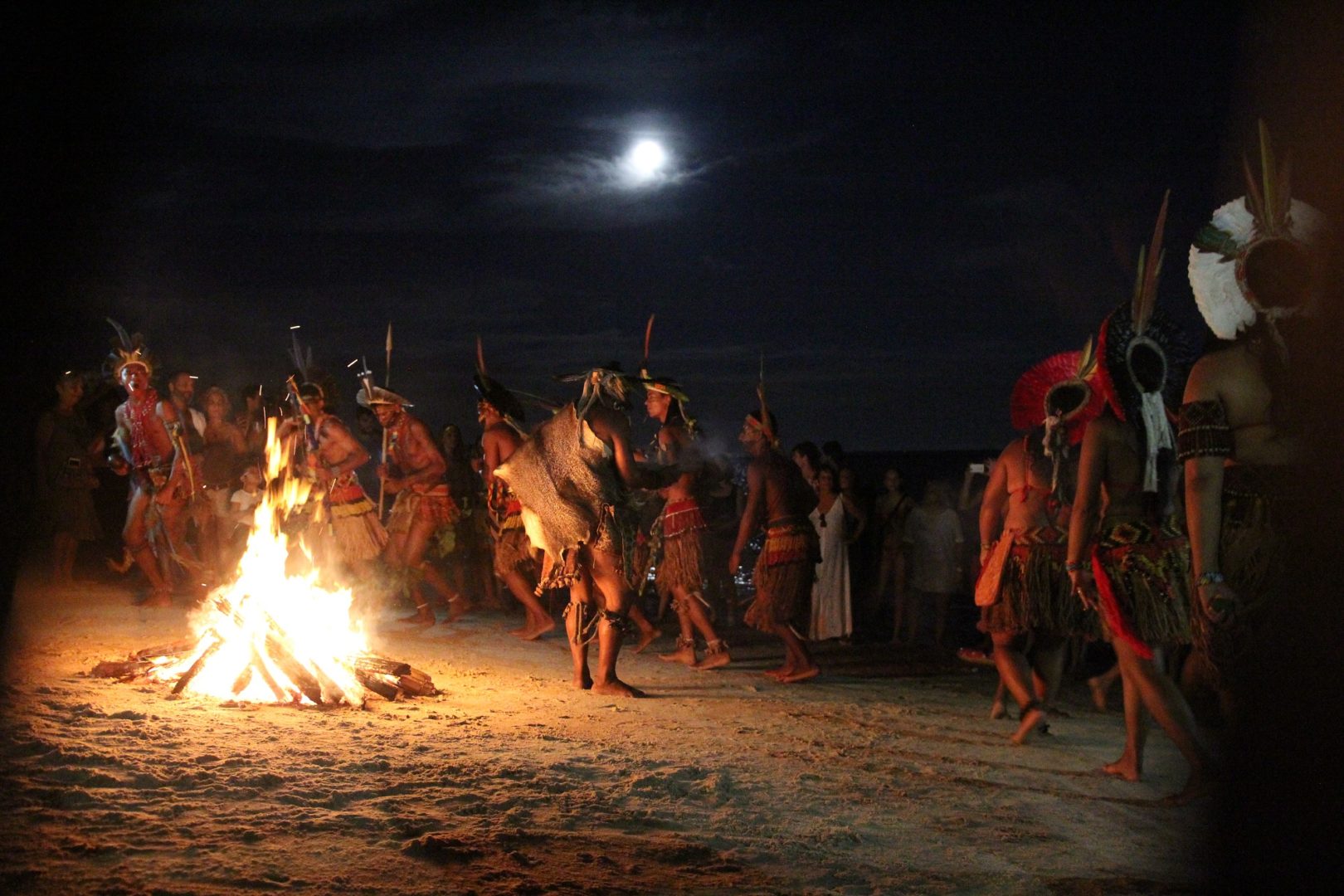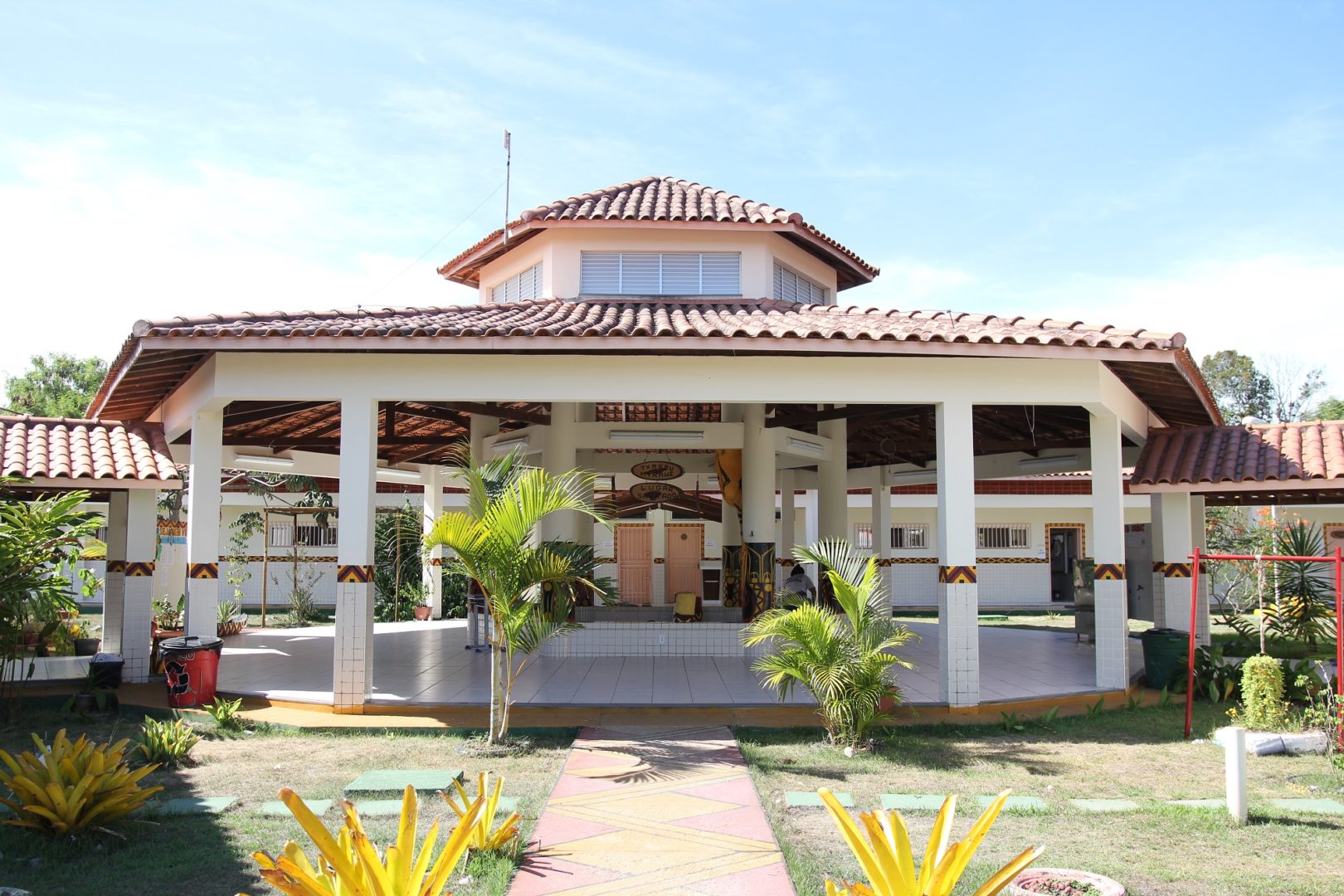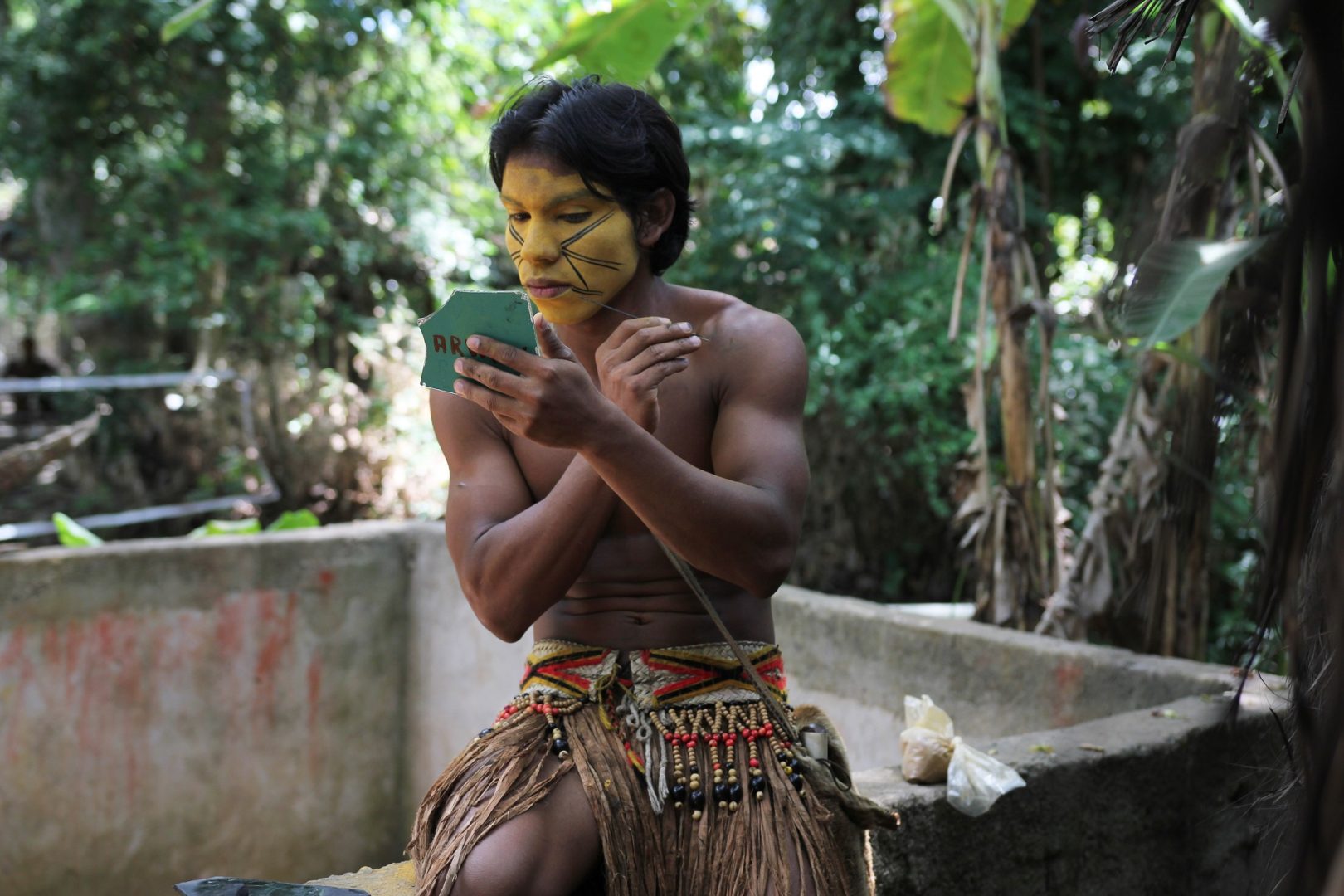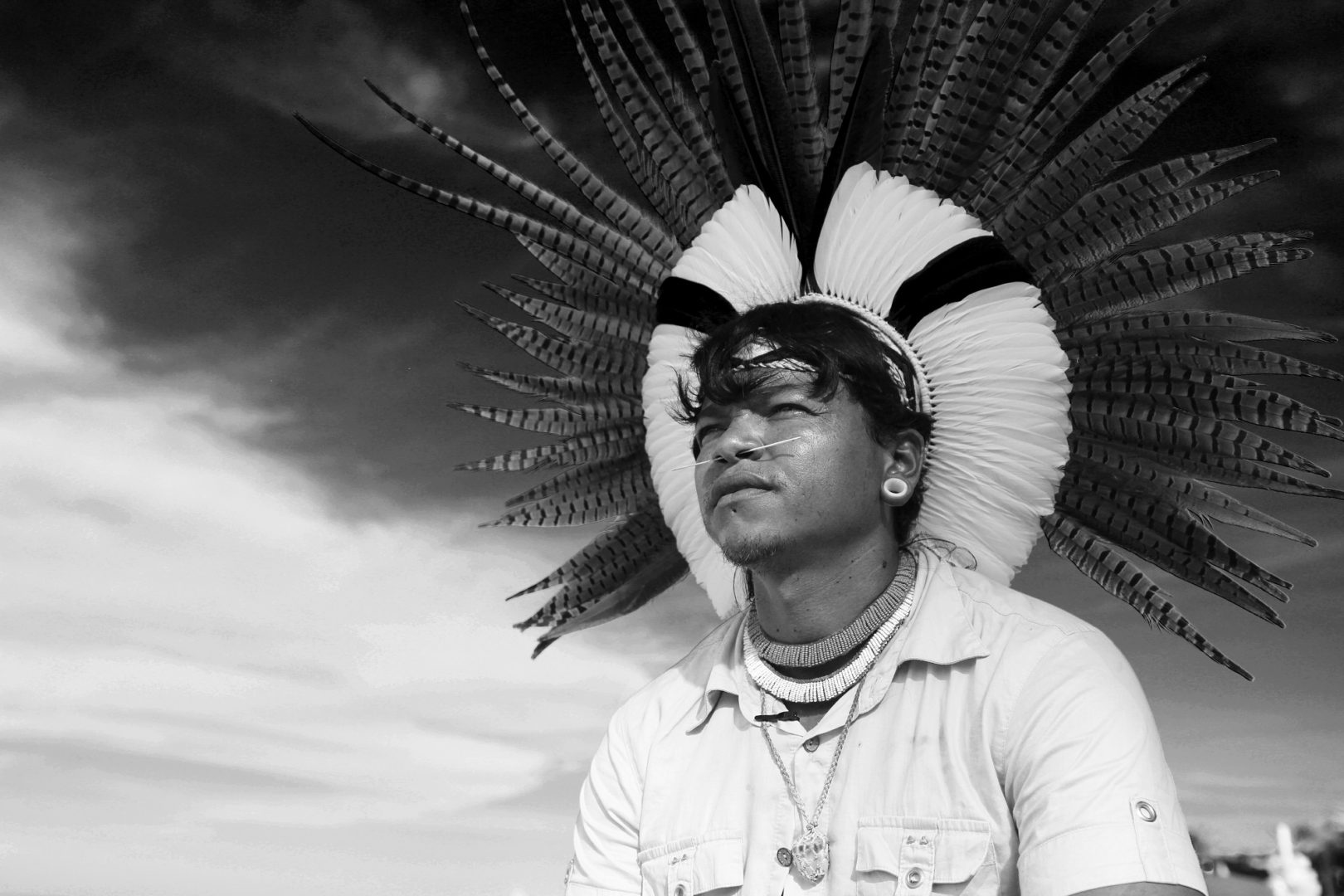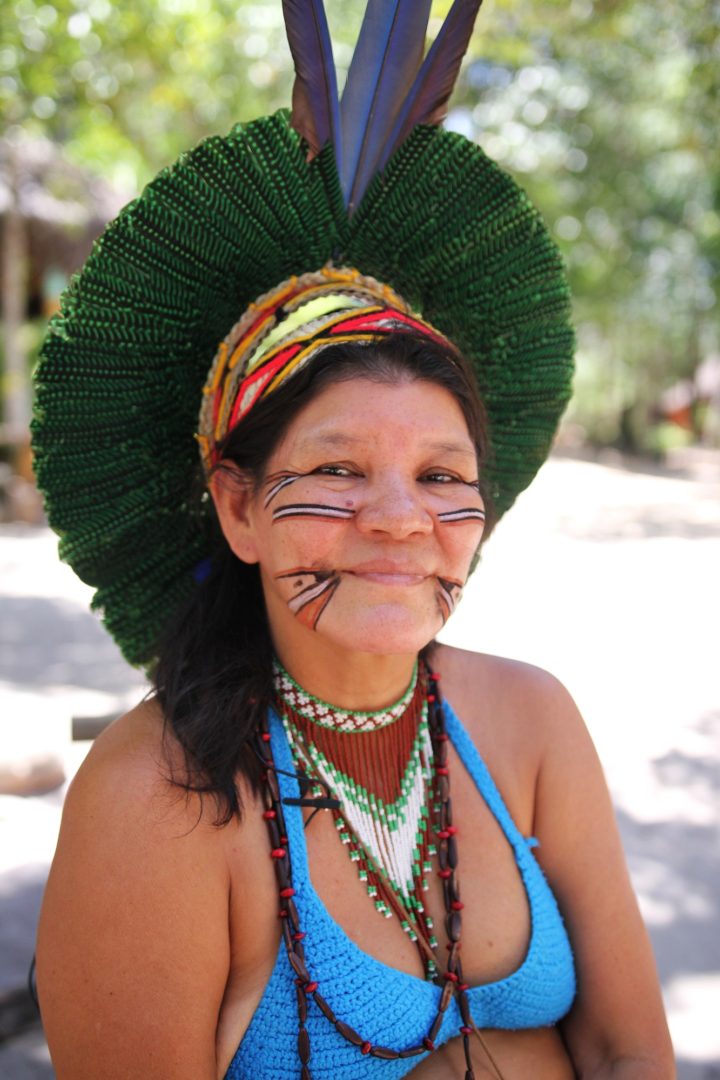Resist, protect, revive: being Pataxó in Brazil
- July 8, 2020
Land & Liberation
For over 500 years, the Pataxó have resisted the colonization of their lands — the struggle to protect their language, culture and history continues to this day.
- Author
There was an elder who was seated on a rock on the seashore. He saw two waves approaching. The first wave hit the rock and made the sound “pa,” the second wave made the sound “ta” and when both waves retreated back to the sea they made the sound “xó.” “Pa-ta-xó.” That’s why Pataxó means the “sound of water.”
— Wêhã, a 19-year-old Pataxó, whose name means “wolf-warrior.”
Wêhã (wolf-warrior)
We are in the Brazilian state of Bahia, in the coastal town of Coroa Vermelha, surrounded by idyllic turquoise waters and white sand beaches. Wêha works in the Txag’ru Mirawê cultural center, a small haven of forest for the Pataxó residents living in this urban town.It was supposedly here, in Coroa Vermelha, where the first Portuguese colonizers landed in 1500, led by Pedro Álvares Cabral. More than 500 years later, the Indigenous tribes of Brazil, including the Pataxó, are still suffering from the consequences of that fateful day.
The Pataxó used to be a nomadic people, traversing the forests and living off what nature provided. However, in the mid-19th century they were forced to settle down and form the aldeia (village) of Barra Velha.
Txag’ru Mirawê cultural center in Barra Velha
Jasoná (bird)
For me, being Pataxó means to resist, because amidst so many difficulties, amidst all the things the government has tried to do to oppress us, the Pataxó has the ability to keep his head up and continue ahead with his ideals and culture.
— Wêhã
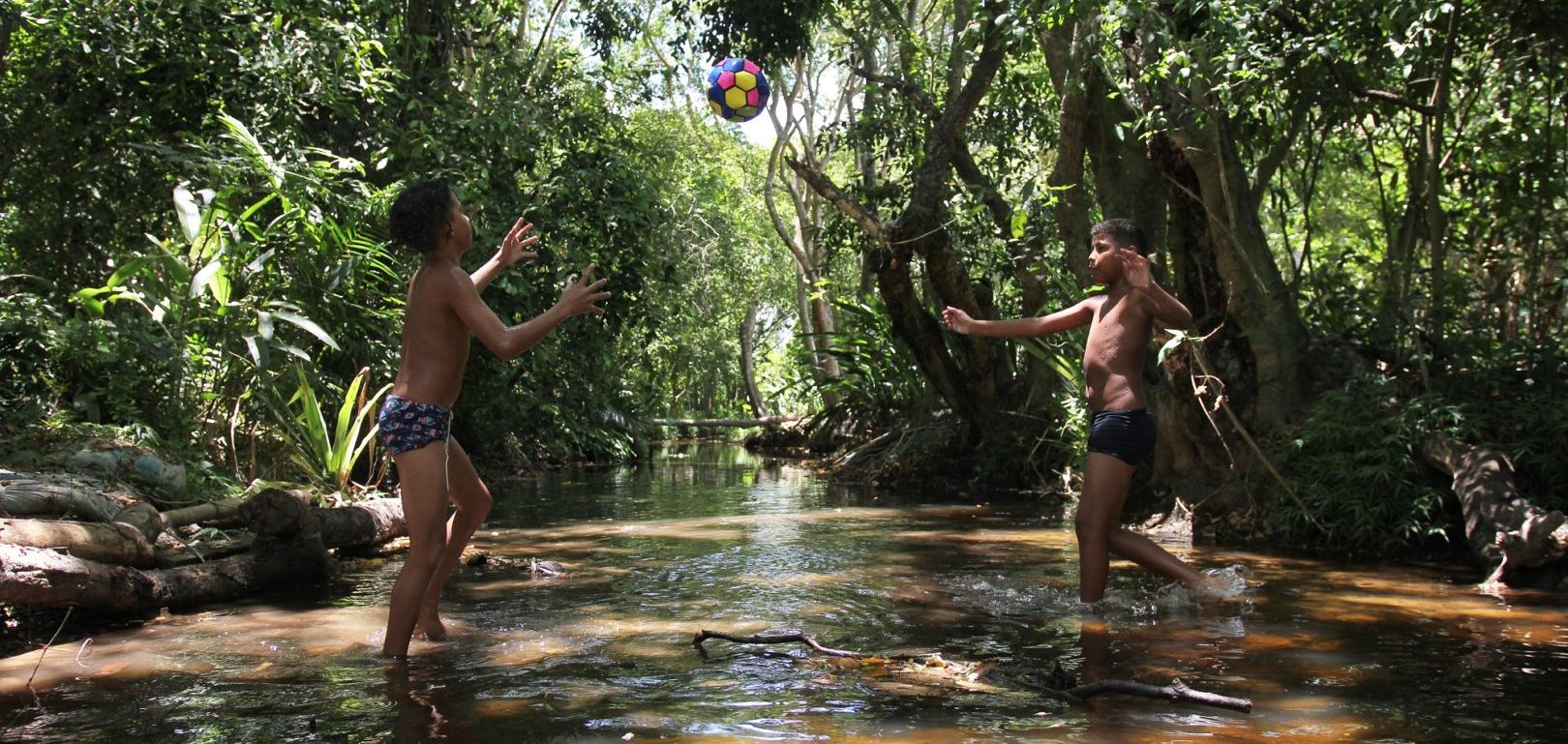
“Many Indigenous peoples were raped and killed,” Ubiranan continues, “so, that’s why I say that our tribe, the Pataxó, are a very warrior-like people, to have survived these massacres. More than five hundred years have passed and we exist, we resist, fighting a fair bit against governments, who come and go, looking to destroy Indigenous peoples and our fauna and flora.”
Many people ask at school, ‘When was Brazil discovered?’ Brazil wasn’t discovered, Brazil was invaded.
— Wêhá Pataxó
In 1951, the Pataxó endured a horrific massacre, in which their original aldeia, Barra Velha, was burnt down by the military, resulting in the Pataxó dispersing and fleeing to other places to seek refuge.
“Many Pataxó fled to the extreme South of Bahia, where they became slaves in exchange for food or a place to sleep,” says Nitynawã. “When they returned back to our lands, everything had been taken. And today we’re fighting to win back our lands that were taken from us. But every time we fight, we have to see the spilt blood of our relatives fall to the ground.”
During the 1951 massacre, the Pataxó were banned from speaking their native language, Patxôhã. “Language is our identity, it’s our secret that our great God left us and now we’ve lost a lot of that,” laments Ubiranan. However, he goes on to explain that today the language is being revived and taught at Pataxó schools.
The elders had to fight hard for the Indigenous youth of today to be able to attend public schools. Nitynawã remembers how she was treated at school: “My teacher used to tell my classmates that I was a cannibal, that I ate flesh, that I killed people. I wasn’t accepted in that place. I knew that they didn’t like me because I was Indigenous. I stayed in school for a few days and then I left.”
Like many of her contemporaries, Nitynawã went on to achieve her dream of being able to read and write without going to school. “And sometimes even today we go through this in schools, at universities, cities, in whichever place we are in we face discrimination and prejudices — not as much as in the past, but still it happens.“
The Indigenous school of Coroa Vermelha
While many Pataxó have to endure all kinds of prejudice simply for being Indigenous, some others, like Wêhá, suffer from not being Indigenous enough. He explains, “I personally have suffered a lot from prejudice because as well as being Pataxó I’m also mixed-race, in other words I’m half white. So many people tell me that I’m not Indigenous. When people say this to me, I tell them about my culture, about why we are like this, what we had to endure to become mixed, but unfortunately these people continue thinking I’m not Indigenous.”
These people are usually foreigners, however, Wêha does not let their ignorance defeat him, “No matter where I go, I don’t deny my identity. I beat my chest and say that I’m Pataxó and whoever wants to disagree, let them. I know where I come from and where I was brought up, I know my origins, my roots and for me that is what’s important.”
Kawahã (warrior’s heart)
Ytxêwá (savior) and Gwanãnhí (happy hummingbird)
“To be Pataxó is to be a warrior, to be a protector of nature.”
— Ubiranan Pataxó, a young leader in the aldeia of Coroa Vermelha.
This complex question of identity — of being mixed or Indigenous — has been weighing down on the Pataxó for years. “The Aldeia Jaqueira was founded in 1997 by three women, in order to demonstrate to ourselves who we are, because our elders, in order for them to be accepted in that other society, had to take on the identity of the caboclo (a person with mixed Indigenous and European ancestry),” says Nitynawã. “So this is a way for us to show that we’re not cabolco, we are Pataxó.”
According to Nitynawã, the biggest difficulty the Pataxó face today is the question of land: “Our right to get our land demarcated as indigenous land. Out of our 40 villages, 15 are demarcated and 25 are still in the process of being demarcated.”
For me, nature is home, she’s a richness that I have.
“We often hear the president say that the Indigenous have too much land. The Indigenous don’t have too much land, it is little land for us. We have our children, grandchildren and great-grandchildren to think about, and we depend on nature to survive.”
“If we don’t look after nature, she will be destroyed and, as we’re seeing in many places. People are dying, cities are being flooded because there’s no more forest to protect the rivers. We believe that the earth is not just for agriculture, but she needs to be preserved for future generations.”
“For me, nature is home, she’s a richness that I have. Nature for me is rebirth, because everyday she is being born and growing. She is important for my children, grandchildren and for me to absorb good energies, nature is everything we have.”
The Pataxó community of Corora Vermelha is currently suffering from food shortages due to the COVID-19 pandemic. Ubiranan Pataxó is organizing a fundraiser to deliver food packages to members of his community. If you would like to contribute, please get in touch with the author at sonumsumaria[at]gmail[dot]com
Source URL — https://roarmag.org/essays/resist-protect-revive-being-pataxo-in-brazil/


